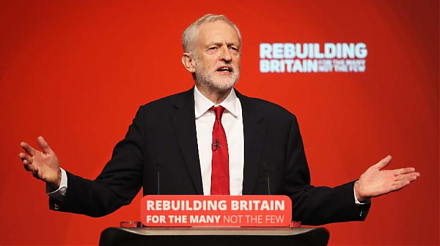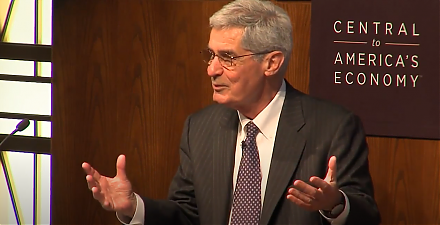

2017-08-25 13:36:00 Fri ET
stock market competition macrofinance stock return s&p 500 financial crisis financial deregulation bank oligarchy systemic risk asset market stabilization asset price fluctuations regulation capital financial stability dodd-frank
The U.S. Treasury's June 2017 grand proposal for financial deregulation aims to remove several aspects of the Dodd-Frank Act 2010 such as annual macro stress tests, supervisory bank capital reviews, proprietary trading restrictions, and so forth. Fed Vice Chair Stanley Fischer warns that the current financial deregulation can be extremely dangerous and myopic: "It took almost 80 years after 1930 for America to experience another [global] financial crisis that could have been of that magnitude... now after 10 years everyone wants to return to a status quo before the [next financial downturn]."
As prior monetary policy turns out to be a rather ineffective solution for the post-crisis macro malaise, fiscal stimulus garners a lion's share of public attention toward lower income taxation and indefinite tax holiday for corporate offshore cash repatriation. Regardless of whether the Dodd-Frank supervisory stress instruments should remain for a more stable U.S. banking system, the Fischer comment rings the alarm bell of fiscal quid pro quo for weak monetary stimulus. This information exchange offers valuable food for thought to the typical stock market investor. While the trend can be his or her friend, the investor needs to weigh the pros and cons of short-term stock price momentum vis-a-vis the close nexus between long-term economic fluctuations and stock market gyrations.
If any of our AYA Analytica financial health memos (FHM), blog posts, ebooks, newsletters, and notifications etc, or any other form of online content curation, involves potential copyright concerns, please feel free to contact us at service@ayafintech.network so that we can remove relevant content in response to any such request within a reasonable time frame.
2019-09-19 15:30:00 Thursday ET

U.S. yield curve inversion can be a sign but not a root cause of the next economic recession. Treasury yield curve inversion helps predict each of the U.S.
2019-06-17 11:25:00 Monday ET

To secure better economic arrangements with European Union, Jeremy Corbyn encourages Labour legislators to back a second referendum on Brexit. In recent tim
2023-02-07 08:26:00 Tuesday ET

Michel De Vroey delves into the global history of macroeconomic theories from real business cycles to persistent monetary effects. Michel De Vroey (2016)
2017-11-29 07:42:00 Wednesday ET

The octogenarian billionaire and activist investor Carl Icahn mulls over steps to shake up the board of SandRidge Energy after the oil-and-gas company adopt
2025-06-21 05:25:00 Saturday ET

President Trump refreshes American fiscal fears, worries, and concerns through the One Big Beautiful Bill Act. The Congressional Budget Office (CBO) estimat
2022-05-15 10:29:00 Sunday ET

Innovative investment theory and practice Corporate investment can be in the form of real tangible investment or intangible investment. The former conce